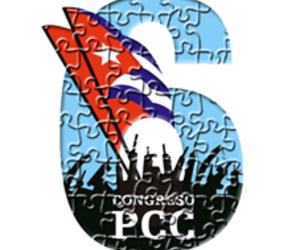Party Congress filling gaps of economic reform puzzle
- Submitted by: manso
- Politics and Government
- 04 / 16 / 2011

Golf and Communism usually don’t mix. But in this case, they do.When some 1,000 rank-and-file delegates and Party leaders gather this weekend in Havana for the 6th Congress of the Communist Party of Cuba, a handful of golf course developers are waiting anxiously to raise their glasses for a toast. During the meeting, they expect to get the official go-ahead for the construction of four major golf condominium developments worth hundreds of millions of dollars.
Of course, the role of the Congress goes much deeper. The 99-year leases for state land the government is granting the foreign developers — the underlying legal mechanism that makes the golf projects possible — are part of a bigger economic reform package that will be ratified by this congress. In a once-in-a-generation effort to make Cuba’s dysfunctional, state-run economy more efficient and raise productivity before the old revolutionary guard leaves the stage, Raúl Castro, 79, and his peers have decided that the state must pull back and allow more private-sector activities. Attracting foreign investment is a crucial part of the plan.
In the run-up to the Congress, millions of Cubans discussed a 291-point document called “Guidelines of Economic and Social Policy,” which, with amendments and cuts, will be adopted by the Party Congress as a road map of economic reform. Beyond the bare bones of reform, however, foreign investors should also look for some flesh to emerge from this Congress.
Here’s what to look for:
•Expect the gradual opening of a real estate market not only for foreigners, but also for Cubans. The “Guidelines” are suggesting “flexible formulas for the barter, purchase, sale, and leasing of housing.” Even though most Cubans hold a title to the place they live in, current rules don’t allow them to buy or sell homes.
•In order to tap fresh investments and more upscale visitors, the government wants the industry to focus on golf, marinas, cruises, eco tourism and health tourism. For the first time, the Cuban state will promote and support privately-owned bed-and-breakfasts and restaurants.
•For the new golf and marina projects, the government may create specialized tourism construction companies with workers whose pay will be largely performance-based.
•The state may allow privately-owned cooperatives and private contractors to enter the construction business.
•State enterprises will gain more autonomy, in a government effort to prompt them to act more like businesses. In some cases, this will empower executives to deal directly with foreign suppliers. On the other hand, this might also mean less security for foreign partners. State companies will be cut off any remaining government subsidies and will be allowed to fail.
•The state will make an effort to create a wholesale supply and credit infrastructure for the fast-rising number of small businesses and urban cooperatives.
•A new food pricing policy is emerging. Expect a decision about what to do with the dysfunctional state agriculture distribution monopoly.
•The government is prioritizing long-term investments in the country’s water infrastructure — reservoirs, dams, canals, tunnels that create an interconnected water supply system throughout the island. The surface of irrigated agriculture will increase. Rehabilitation of urban water grids will continue.
•Government reform: Creation of a state sugar company and a restructuring of the Basic Industries Ministry, separating oil and nickel. This means foreign suppliers and investors will deal more often with company executives, rather than ministry officials.
•More autonomy and tax income for municipalities. This means foreign suppliers and investors may begin to talk directly to local government officials.
•In an effort to diversify exports and substitute imports, the government will make investments to revive manufacturing, including production of tires, construction material, and metals.
•Similar to China in the 1990s, the government plans to create Special Development Zones. These areas will focus on export and import-substitution activities and high-tech manufacturing.
•In an effort to shape up its dilapidated transportation infrastructure, Cuba is prioritizing the rehabilitation of its railroad network.
•In order to promote exports and obtain lower freight rates, the government is making an effort to expand air cargo capacities, renovate and expand ports, and add to its cargo shipping fleet.
•In electricity generation, the government emphasizes renewables and co-generation.
•In its medical and educational support of other nations, Cuba will seek to “at least” cover its costs, “wherever possible.”
As exemplified by the deferred plan of laying off 500,000 state workers, the reform and adjustment process is not etched in stone. It’s trial-and-error. What doesn’t work will be discarded, and — more importantly — you should expect deeper reform measures to be added, once some of the steps turn out to be too small.
Source: www.cubastandard.com/2011/04/14/party-congress-adds-pieces-to-the-econom...
Comments